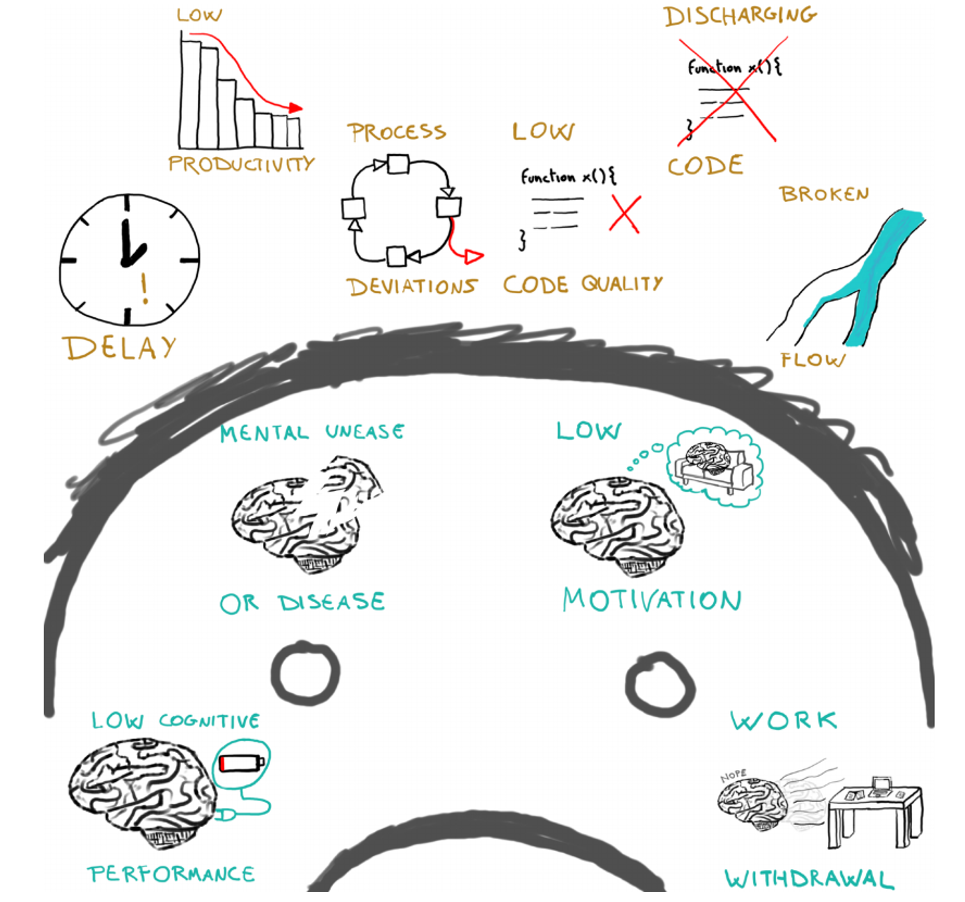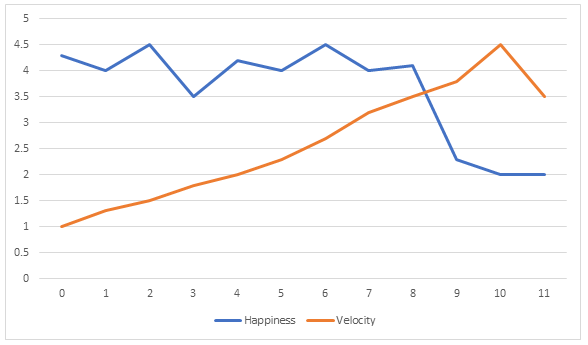
Happiness is crucial to your business and is actually a better forward predictor of revenue than most of the metrics your CFO provides. In this article we’re going to lay out just how important happiness is to your organization, and how to capture, measure, and apply it.

People are an organization’s greatest asset – yet so often they’re treated like expendable resources. When leaders invest in their people and enable them to do their best work, employees identify more strongly with the organization and are willing to go the extra mile to help it be successful. In return, organizations get higher levels of performance and productivity, which lead to better outcomes for the business.
Effective management practices combined with technical approaches, such as continuous delivery, don’t just impact performance, they also have measurable effect on organizational culture.
Happy people simply do better – at home, at work, in life. They have better jobs, they make more money, they graduate from college, and they live longer. It’s quite remarkable. Almost universally they’re just better at what they do.
Even just a little bit of happiness leads to markedly better outcomes. People don’t have to be ecstatic, got-a-puppy happy, just a little bit happier that they were. Of course, making them even happier has an even greater effect. But the message we want to take away from this is simple: even small gestures have great impact. Just one thing at a time, and you can actually change the world.
It’s not enough to think people are happy. You have to be a scientist about it: quantify it and equate it with performance. If something doesn’t match up, there’s a problem.
Being happy corresponds to frequent positive experiences, which lead to experiencing positive emotions. Being unhappy corresponds to the reverse: frequent negative experience leading to negative emotions. Happiness is the difference or balance between positive and negative experiences. This balance is sometimes called affect balance.
While it is intuitive that happiness is beneficial for productivity and well-being, these ideas are also supported by scientific research. Research has shown that:

It isn’t enough to reach a certain level of productivity and stay there; the idea is to constantly examine your processes and improve them constantly and forever. Every increment in that direction counts.
Through the work of scholars, we know that happiness positively impacts developers’ sense of self - increased motivation and accomplishment. Higher creativity, engagement and self-confidence are all results reported from greater happiness.
By contrast, unhappiness causes delays, process deviations, and low code quality. These external effects are direct impacts on productivity and performance. Internal consequences, such as low motivation, mental unease or disorder, and low cognitive performance indirectly affect productivity as well.

In his book Scrum: The Art od Doing Twice the Work in Half the Time, Jeff Sutherland, co-creator of Scrum, introduces what he considers the best way to discover that little improvement that can make things better.
Here’s how it works. “At the end of each sprint each person on the team answers just a few questions:
And here’s the crucial step – the team takes that one top improvement and makes it the most important thing to do in the next sprint.”
It turns out that the Happiness Metric is predictive. Financials look at what happened in the past, but when you ask people how happy they are, they actually project into the future. For instance, a drop in happiness precedes a drop in velocity or productivity by weeks. If you see a team-wide drop in happiness, even as productivity is increasing, you know you have an issue that you need to address, and soon.

All you have to do is to start asking the team, “What would make you happier?” and then deliver on in.
And something to keep in mind: software development is a human endeavor, and the humans – the developers – doing it are individuals with feelings. Happy developers truly are an organization’s greatest asset and investing into their well-being is worthwhile.
What would make your Dev Team happier? Ready to reflect and act upon it?